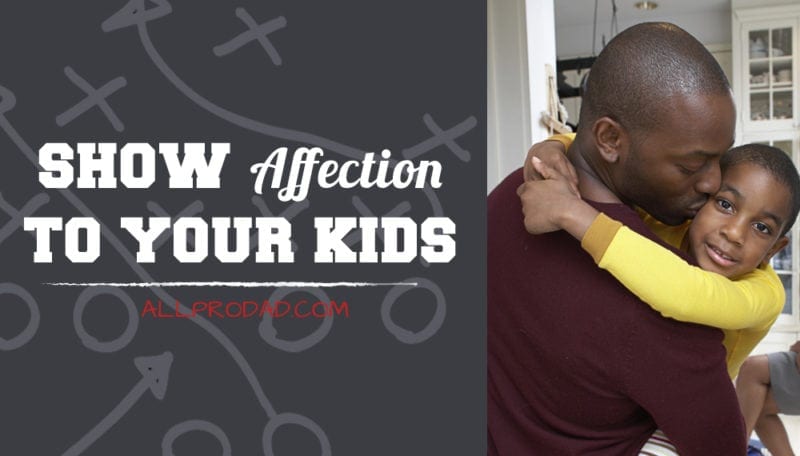My mom is a very affectionate person. It’s something I love about her. Recently, she helped in my sister’s classroom (she’s a kindergarten teacher). At the end of the day, my mom was saying goodbye to the kids and she got on her knees and gave one of them a hug. When she finished, she looked up and there was a line of kids waiting for hugs. There are many ways to show affection to our kids and they need it. It’s a crucial piece that can have a great impact on them. But showing affection is not something that comes naturally for some men. So, how do we meet this need of our kids when it’s something that is not always natural and, for some, uncomfortable? Do we leave this up to Mom?
No, not at all. This is not a Mom vs. Dad job. As Dad, part of your responsibility is to meet the needs of your kids, no matter what those needs are. Here are 3 reasons dads must show affection to their kids.
1. Better communication.
Studies say you have better parent-child communication when you show affection to your kids. The affection of hugging, wrestling around, holding hands, or even kissing breaks down barriers. It frees you and encourages your kids to be more open with you, especially in the area of communication.
When a child knows he has love and support, he feels that he can take on the world.2. Higher self-esteem.
When a child knows he has love and support, he feels that he can take on the world. The studies also reveal that your children will have higher self-esteem when you show affection. They know when they fail they have some loving arms to run to. They know when they do well, they have a high five or pat on the back awaiting them. No matter what the situation, they’ll have the support they need.
3. Better social interaction.
Your affection shows your kids you love them. It shows them they are valuable. When our kids feel loved and valued, they’ll be less likely to search for those things in peer relationships. The things they are looking for are right there in your arms, your words, and your actions. This is helpful when they have choices to make amongst peers who may be into things they’re not comfortable with or have been advised against.










